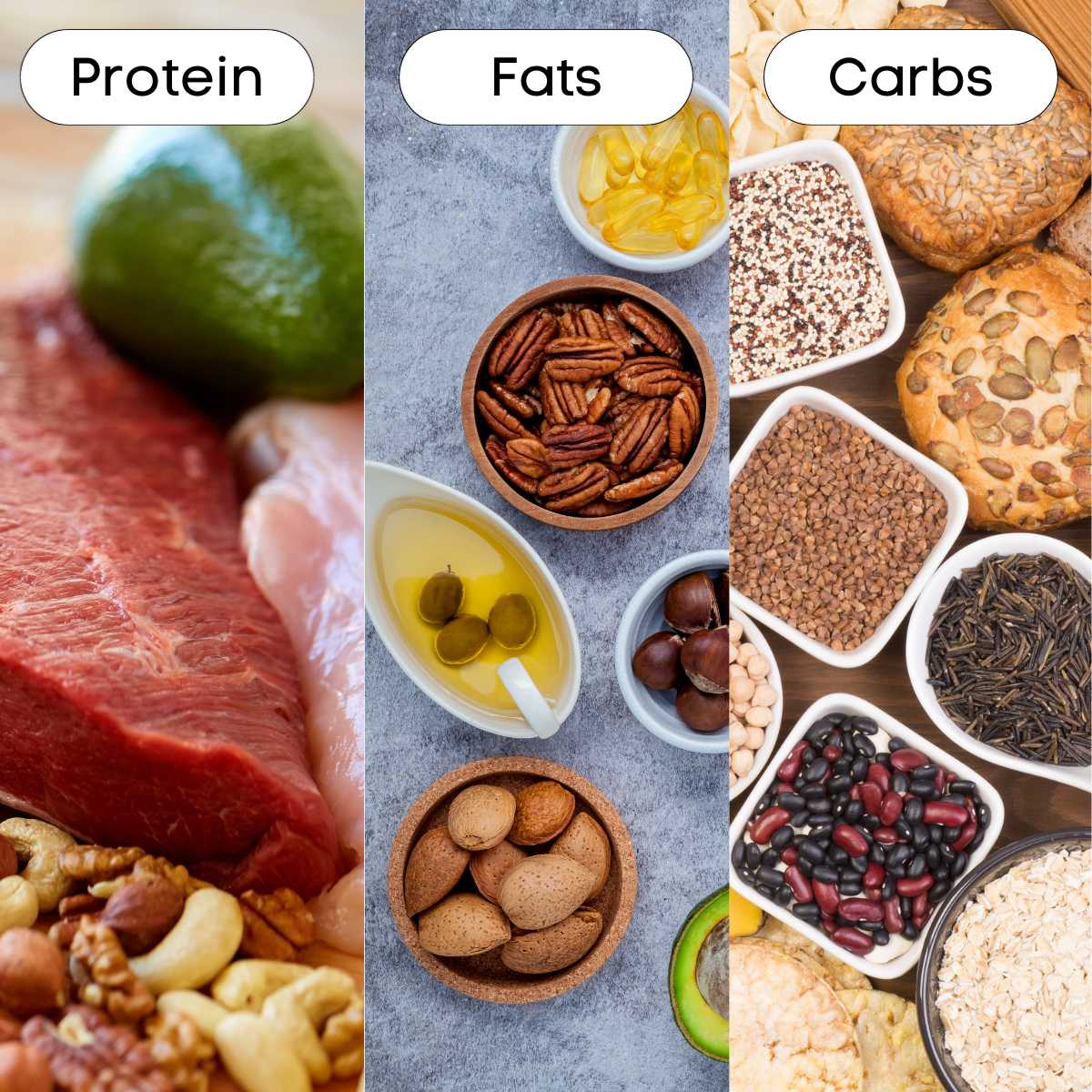Effective Ways to Use Carbohydrates for Muscle Building in 2025: Discover Proven Strategies
In recent years, the role of carbohydrates in muscle building has come to the forefront of fitness nutrition discussions. As fitness enthusiasts continuously seek optimal ways to enhance muscle growth, understanding the significance of carbohydrates has become vital. Carbohydrates are not just a source of energy; they are a crucial component in fueling muscle recovery, enhancing performance, and promoting overall nutrition for those focusing on muscle building.
This article will explore effective ways to utilize carbohydrates for muscle building, focusing on dietary strategies, timing, and the balance of nutrients necessary for optimal performance. By implementing these methods, you can effectively boost your training results and reach your fitness goals faster. Key takeaways include insights into carbohydrate types, planning your meals effectively, and understanding how they improve your workout performance.

Essential Guide to Carbohydrate Intake for Muscle Building
Building on the fundamentals of nutrition, the proper understanding of carbohydrate intake is crucial for anyone looking to enhance their muscle-building efforts. Carbohydrates provide the energy required for intense workouts and daily activities, thus playing a significant role in the composition of your diet. To maximize muscle growth, it’s essential to know the carbohydrate needs specific to your body and training regimen, which we’ll cover in this section.
Understanding Carbohydrate Requirements
Carbohydrate needs vary depending on factors such as body composition, activity level, and overall fitness goals. On average, individuals looking to gain muscle should aim for 3-7 grams of carbohydrates per kilogram of body weight daily. This intake can be adjusted based on workout intensity and duration.
For example, someone engaging in heavy resistance training may require more carbohydrates to replenish glycogen stores that are depleted during exercise. Ensuring a steady supply of energy allows for greater performance during workouts, ultimately supporting muscle growth.
Identifying Optimal Carbohydrates for Muscle Gain
Not all carbohydrates are created equal. Focusing on the right types of carbohydrates is essential for maximizing muscle gain. Complex carbohydrates, such as whole grains, legumes, fruits, and vegetables, provide sustained energy and promote optimal fueling for workouts. On the other hand, simple carbohydrates, like sugary snacks and drinks, can cause rapid spikes and drops in blood sugar levels, which may not be beneficial for sustained energy or muscle building.
Integrating a mix of complex and simple carbohydrates—such as consuming simple carbs after workouts to quickly replenish glycogen—can enhance recovery and support energy levels more effectively.
Carbohydrate Timing for Maximum Efficiency
Timing your carbohydrate intake is a proven strategy to support muscle growth. Consuming carbohydrates pre-workout can boost energy levels and enhance performance. Studies suggest that eating a carbohydrate-rich meal approximately 1-3 hours before your workout can significantly improve endurance and strength during training sessions.
Post-workout, consuming carbohydrates is crucial for replenishing glycogen stores and ensuring proper recovery. This is your body’s prime time for nutrient absorption, often referred to as the “anabolic window.” Incorporating quick-digesting carbs— like banana or sports drinks—along with proteins after your workout is vital for muscle recovery.

Effective Strategies for Muscle Building Nutrition
With a solid understanding of carbohydrate needs established, it’s important to apply practical strategies to effectively utilize carbs for muscle building. Building on the concept of caring for nutrient timing and quality, this section delves deeper into how to create a balanced diet tailored for muscle growth.
Creating Ideal Meals for Muscle Growth
Meal planning is essential for consistent energy levels and optimal nutrient distribution. A well-balanced meal should include a combination of proteins, healthy fats, and a variety of carbohydrates. Such meals promote energy stability, allowing for better workout performance.
For example, a meal consisting of grilled chicken, quinoa, and steamed broccoli not only meets protein and carb requirements but also fuels muscle recovery effectively. Adjustments can be made based on personal preferences and specific dietary needs.
Incorporating Pre- and Post-Workout Snacks
In addition to well-planned meals, including strategic pre- and post-workout snacks can enhance performance and recovery times. Pre-workout snacks should be carb-rich to elevate energy levels, while post-workout snacks should focus on the combination of carbohydrates and proteins to aid in recovery.
For instance, a snack of Greek yogurt with mixed berries offers a delightful option that nourishes both your energy needs before workouts and supports recovery afterward. Understanding the significance of these snacks enhances your overall training experience.
Monitoring Nutrient Distribution for Muscle Gain
A key aspect of effective muscle-building nutrition is to ensure appropriate macronutrient distribution. Typical recommendations suggest that athletes and fitness enthusiasts aiming for muscle gain should consider allocating approximately 45-65% of their total daily caloric intake to carbohydrates, 20-35% to proteins, and 20-35% to fats.
Keeping a food diary can help track your intake and adjust accordingly, ensuring you meet your macronutrient goals while staying aligned with your muscle-building strategies. This level of monitoring leads to smarter dietary choices and supports tracking progress effectively.
Understanding Supplements for Muscle Building
As the science of nutrition continues to evolve, supplements are becoming an integral part of muscle building. This section will explore common supplements designed to complement your diet and optimize your workouts, placing them within the broader context of overall nutrition.
Popular Nutritional Supplements for Muscle Growth
Supplements such as whey protein, creatine, and amino acids can play supportive roles in muscle building when used alongside a well-rounded diet. They can be particularly useful in ensuring adequate protein intake, promoting recovery, and enhancing performance during workouts.
For instance, creatine is known to improve strength and explosive power, making it a suitable candidate for individuals engaged in heavy lifting routines. However, it’s important to choose supplements that align well with your dietary goals.
Safety and Efficacy of Supplements
While supplements can enhance muscle growth, it’s essential to prioritize safety and efficacy. Consulting with a healthcare professional or dietitian before introducing supplements into your regimen ensures they complement your unique dietary needs without causing side effects.
Additionally, focusing on high-quality supplements that have undergone third-party testing can increase the likelihood of desired results without harmful additives.
Holistic Approaches to Muscle Building
In addition to supplementation, adopting a holistic approach to nutrition—considering aspects such as overall wellness, recovery, and stress management—can significantly enhance muscle-building efforts. Mental focus and lifestyle choices play vital roles in achieving fitness goals.
Incorporating mindfulness into eating habits and establishing a routine that balances exercise with recovery ensures a well-rounded approach to fitness. Such strategies help maintain a stable energy supply and promote long-term success in muscle building.
Q&A About Carbohydrates in Muscle Building
How many carbohydrates should I consume for muscle growth?
Your carbohydrate needs vary based on factors like body weight, activity level, and training goals. A general guideline is to consume between 3-7 grams of carbohydrates per kilogram of body weight daily for optimal muscle growth.
What are the best types of carbohydrates for muscle building?
Complex carbohydrates are ideal for sustaining energy levels and promoting muscle growth. Examples include oats, brown rice, and sweet potatoes. Incorporating these foods provides essential nutrients while supporting overall health.
When should I consume carbohydrates for the best results?
Carbohydrates should ideally be consumed before workouts for energy and after workouts for recovery. Timing your intake within the anabolic window—typically about 30 minutes post-workout—can enhance recovery and muscle replenishment.
Can supplements replace my carbohydrate intake?
While supplements can support your goals, they shouldn’t replace whole food sources of carbohydrates. Whole foods provide additional nutrients and fiber that supplements cannot replicate. A balanced diet should be the foundation of muscle building.
How may carbohydrates affect my energy levels during workouts?
Carbohydrates are the primary source of energy for your muscles during physical activity. Consuming adequate amounts leads to improved endurance, strength, and performance. This allows for longer and more productive workouts.
Conclusion:
Successfully utilizing carbohydrates for muscle building requires a well-rounded understanding of dietary needs, nutrient timing, and supplement use. By applying these effective strategies, you can optimize your training protocols and fuel your journey towards achieving your muscle-building goals.
